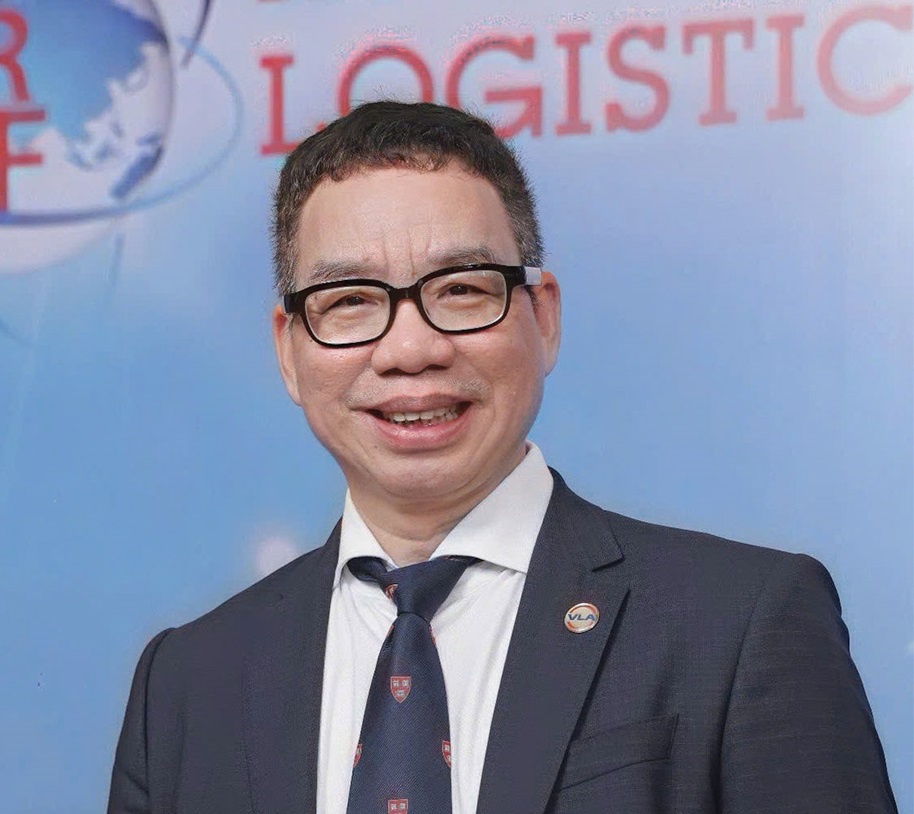INTERNATIONAL INVESTMENT
AND PORTAL
How do you evaluate the impact of Resolution No.68-NQ/TW on the development of the logistics industry and market?
 Dao Trong Khoa, president of the Vietnam Logistics Business Association
Dao Trong Khoa, president of the Vietnam Logistics Business Association
The resolution identifies logistics as one of the priority sectors, enjoying policies to promote green investment, high technology, and knowledge-based economy. With many incentives, the resolution is expected to give a push for players and the industry development.
Specifically, it includes tax incentives, administrative reforms, and property rights protection to help private and joint venture logistics enterprises, for example under the public-private partnership (PPP) model, to reduce operating costs and investment barriers.
It also strengthens the construction of smart logistics infrastructure and multifunctional industrial parks to help reduce logistics costs and improve connectivity, especially in multimodal transport.
Also importantly, the resolution promotes transparency, shifting from pre-inspection to post-inspection, eliminating the mindset of asking for permission. It helps shorten the time for applying for permission and creates a fairer competitive environment.
We forecast that logistics businesses will have easier access to capital; product and service quality will be upgraded faster; costs and time will be reduced; and competitiveness will increase both domestically and internationally.
What are Vietnamese logistics enterprises expecting from policy changes to further motivate them?
In this context, logistics players expect some major changes to enable them to make next steps with their new strategies.
First is synchronous infrastructure and clear policies. They specifically include development of highways, seaports, cold logistics, and promoting the PPP model to increase connectivity.
Second is flexible access to capital: under the resolution, businesses are pinning high hopes on performance-based credit policies, and support for corporate bonds and venture capital
Third is technical support. Digital technology transfer to apply automation, cold chain data management, and AI in logistics management are a step to reduce costs and improve performance.
And fourth is long-term policy stability especially related to taxes, traffic safety, environmental standards, and others to reduce business uncertainties.
Which are the driving factors for effective performance of Resolution 68 and other resolutions so as to enable the country to achieve its goals?
There are important factors and actions needed to realise the vision. The country needs to boost institutional reform and laws towards implementing the post-audit and reduce local procedures, as well as legal protection of property rights, and anti-economic criminalisation.
Moreover, the country needs to building modern infrastructure and green logistics by giving priorities to investments in ports, cold storage, and multimodal transport; and encouraging PPPs in particular localities.
Also, capital markets and corporate finance should be further developed to support initial public offerings, bond issuance, and performance-based credit guarantees.
It is additionally necessary to improve personnel capacity to better serve digital transformation by enhancing training digital and green skills for human resources in the logistics industry, and encouraging innovation in supply chain management.
What are some lessons from other countries on attracting resources from the private sector in developing the logistics industry?
Many countries in the world make success in attracting private investments and resources in developing their logistics industry.
For instance, Ireland offers 25-year export tax exemption and good infrastructure to attract high-tech investment in the logistics industry. In Poland, special economic zones attract foreign direct investment, while creating jobs, focusing on infrastructure and reducing taxes for large businesses. Meanwhile, nations like China and India are effectively applying large-scale PPPs to transport and logistics projects. These countries now have developed logistics industries.
According to the Organization for Economic Cooperation and Development and the World Bank, Vietnam needs to strengthen PPPs, data transparency, and legal reforms to increase supply chain efficiency.
Resolution 68 is a strategic push in that direction, contributing to increasing investment in logistics infrastructure, reducing costs and administrative barriers for businesses, and enabling digital transformation and greening the logistics industry.
To achieve real effectiveness, it is necessary to boost institutional reform, infrastructure, human resources, and dialogue simultaneously. Referring to international experience will also help Vietnam shorten the time to become an effective and globally competitive logistics centre.



















